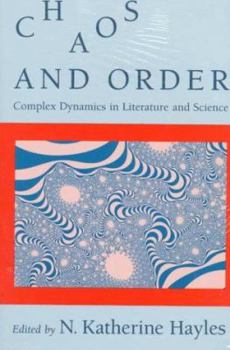Chaos and Order: Complex Dynamics in Literature and Science
Select Format
Select Condition 
Book Overview
The scientific discovery that chaotic systems embody deep structures of order is one of such wide-ranging implications that it has attracted attention across a spectrum of disciplines, including the humanities. In this volume, fourteen theorists explore the significance for literary and cultural studies of the new paradigm of chaotics, forging connections between contemporary literature and the science of chaos. They examine how changing ideas of order and disorder enable new readings of scientific and literary texts, from Newton's Principia to Ruskin's autobiography, from Victorian serial fiction to Borges's short stories. N. Katherine Hayles traces shifts in meaning that chaos has undergone within the Western tradition, suggesting that the science of chaos articulates categories that cannot be assimilated into the traditional dichotomy of order and disorder. She and her contributors take the relation between order and disorder as a theme and develop its implications for understanding texts, metaphors, metafiction, audience response, and the process of interpretation itself. Their innovative and diverse work opens the interdisciplinary field of chaotics to literary inquiry.
Format:Paperback
Language:English
ISBN:0226321444
ISBN13:9780226321448
Release Date:August 1991
Publisher:University of Chicago Press
Length:316 Pages
Weight:6.20 lbs.
Dimensions:0.7" x 6.0" x 9.0"
Customer Reviews
1 rating
Completely different from the norm
Published by Thriftbooks.com User , 24 years ago
What shocked me was when the book started by talking about chaos and buddhist philosophy. This is not a book that will teach you the basics on fractals, nor is it an advanced book that will teach you how to run an experiment on chaos. I don't really know what this book is but whatever it is, it is INTERESTING. I was not expecting such a different topic base. Apparently, this book is a collection of essays, all based on chaose but from non-mathematical perspectives.






